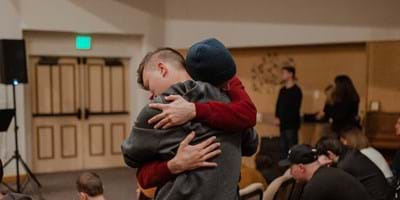It led to a useful discussion. We thought about a couple of issues. We thought about discovering morality and then defining identity.
Discovering morality
I told her I understood why she felt the way she felt. Why would you want to go somewhere where you are told that you or someone you really care about is sinning? I told her that I found her care for her friends really admirable, and she obviously is a very loyal friend.
However, I told her I thought there was a problem with her approach to this issue. She was making up her mind on whether the church’s view on an issue was right or wrong based on whether it condemned the lifestyle or hurt the feelings of someone she cared about. It is a bit like rejecting the warnings about the damage smoking does because you have a loved one who smokes.
I suggested that a better approach would be to investigate whether God exists, and, if so, has He expressed His will on how humans should behave sexually. If He does exist and has revealed His will, then the only wise course of action is to align our thinking and living with that.
She agreed that this made sense. So, we discussed the issue of whether the Bible is God’s Word, and then I pointed out that, according to the Bible, His will for human sexuality is that sex should only be within the confines of a heterosexual, monogamous, covenant relationship, which the Bible calls marriage.
I told her that to deviate from God’s Word is not only disobedient, but also foolish. I gave her two reasons why it is foolish:
No one knows more than God knows
If we get a car but ignore the manufacturer’s instructions about how the engine is to be looked after, we are sure to have a breakdown. God is the maker and designer of the human race. He knows how we are supposed to function. He knows what is good for us and what isn’t. He says that we are to interact sexually in a certain way, within certain constraints. It is foolish to ignore the manufacturer’s instructions.
No one loves more than God loves
The God of the Bible is a God who has proven His love for us in the person of Jesus Christ. When we look at Him we are looking at God. He shows us that God isn’t against us. God is for us and can be trusted, even if we don’t understand why He forbids what He forbids. He loved us enough to die for us. This is the One who calls on us to yield the throne of our lives to Him.
We then went on to discuss defining identity – what did she mean when she said her friends couldn’t be themselves? I’ll tell you about that next time.




























